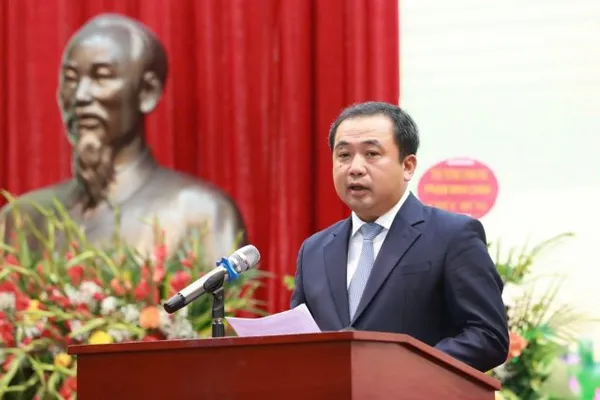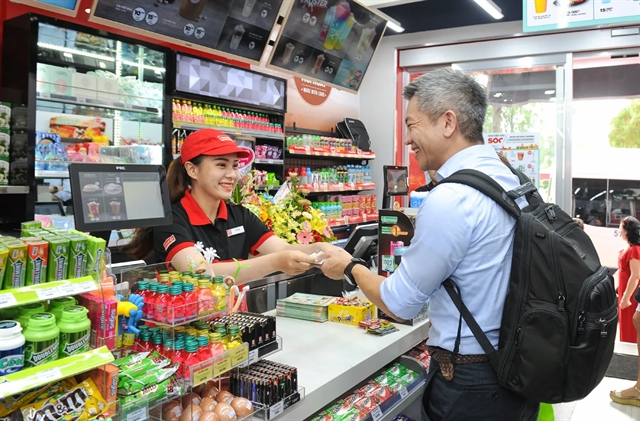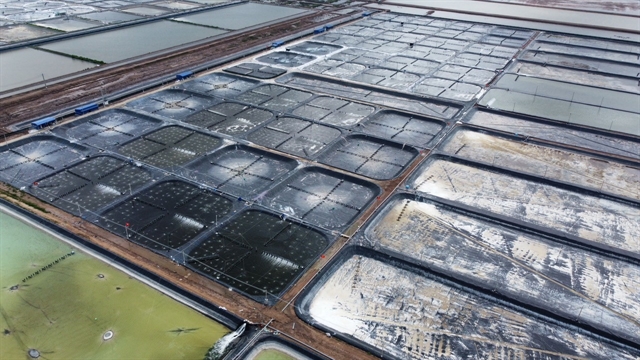 bizhub
bizhub
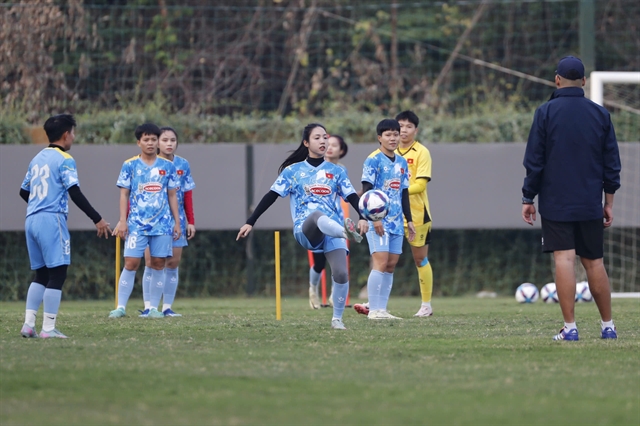
The initial public offering (IPO) of Bình Sơn Refining and Petrochemical Company Limited (BSR) in the fourth quarter of this year is expected to lure big investors, especially those with value, given the company’s mammoth capitalisation.
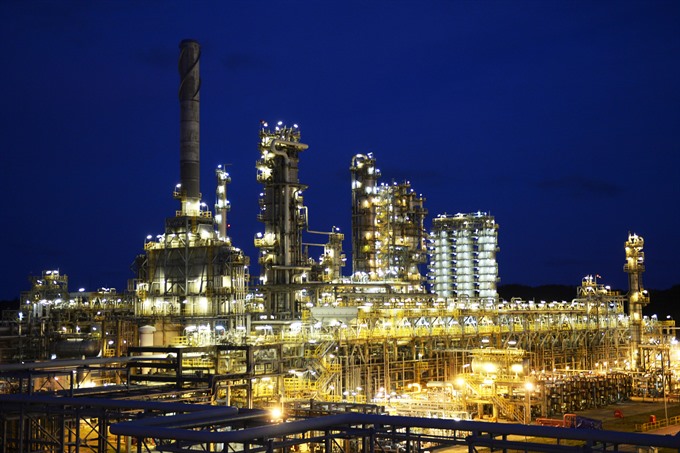 |
| Dung Quất oil refinery at night. — VNS Photo |
HÀ NỘI – The initial public offering (IPO) of Bình Sơn Refining and Petrochemical Company Limited (BSR) in the fourth quarter of this year is expected to lure big investors, especially those with value, given the company’s mammoth capitalisation.
BSR is the wholly-owned subsidiary of Việt Nam National Oil and Gas Group (PetroVietnam) and operator of the US$3 billion Dung Quất Oil Refinery, the first oil refinery in the country.
In early June, the Việt Nam oil refinery was valued at VNĐ72 trillion ($3.2 billion) at the end of 2015 according to a decision signed by the minister of industry and trade. The size of State holding in the company is almost VNĐ45 trillion.
To date, Bình Sơn Refining and Petrochemical Co Ltd is the largest company by market capitalisation implementing equitisation.
Given its large size, Bình Sơn will sell capital in two tranches, with up to 6 per cent of capital to be offered in its IPO in the last quarter, while some 36 per cent will be sold to strategic investors within 12 months of the IPO.
The IPO, expected to be the largest this year, will provide investors an opportunity to buy a high-quality product on the stock market. Following the IPO and listing on the stock exchange, BSR will advance to the short list of billion-dollar companies in the market.
There are currently some 20 companies with market capitalisation of over $1 billion on the two stock exchanges and the Unlisted Public Companies Market (UPCoM).
Leading industry position
Following seven years of operating the first oil refinery in Việt Nam, BSR has earned total revenue of over $36 billion and profits of VNĐ13 trillion ($600 million) until the end of the first quarter of 2017.
Products of Dung Quất oil refinery make up some 36 per cent of the domestic demand. The company’s market share is expected to increase following the Government’s decision early this year which allowed the company to introduce its own price mechanism. Self-regulated pricing will enable the company’s products to compete fairly with imported products and help expand exports.
“At present, all aspects of BSR’s business are very stable and effective,” BSR’s general director Trần Ngọc Nguyên said.
The company reported net profit of nearly VNĐ4.5 trillion in 2016, a five-fold increase over its target set for the whole year. This result is respectable in the context that global oil prices remained low last year with prices occasionally falling below $30 per barrel.
The oil refinery has raised its business targets this year by 15-20 per cent. It posted revenues of over VNĐ21 trillion and contribution to the State budget of VNĐ2.5 trillion by the end of the first quarter.
Ending May, its return on equity ratio reached 8.67 per cent, return on assets ratio was 4.81 per cent and capital adequacy ratio was 1.091.
According to Nguyên, efficiency of a petrochemical company can be more accurately assessed from the rate of return instead of revenue figures, which depend heavily on volatile oil prices in the global markets.
In 2013, BSR’s revenue reached VNĐ154 trillion and net profit was VNĐ2.93 trillion. However, in 2016, its revenue almost halved compared with 2013 to just VNĐ74.6 trillion, but net profit doubled to nearly VNĐ4.5 trillion.
Luring value investors
In May, Bình Sơn Refining and Petrochemical sent invitations to 15 domestic and foreign investors for its IPO. Many potential investors from Japan, Venezuela, Russia and South Korea have expressed interest in BSR shares.
The company has also targeted institutional investors, including banks, financial institutions and investment funds, which have strong financial resources, experienced human resources and cutting-edge technology to help diversify products and processing.
The IPO is expected to attract big investors as State holding in the company will reduce to below 50 per cent of its charter capital, which offers more opportunities for investors to participate in the company’s management.
BRS is also implementing works to upgrade and expand the Dung Quất oil refinery. Once completed by the end of 2021, the factory’s capacity will increase by 30 per cent to 8.5 million tonnes of crude oil per year and satisfy 50-60 per cent of domestic demand for petroleum products.
The refinery’s expansion will help to multiply its diverse range of its products, creating more value for the company and its shareholders. – VNS

